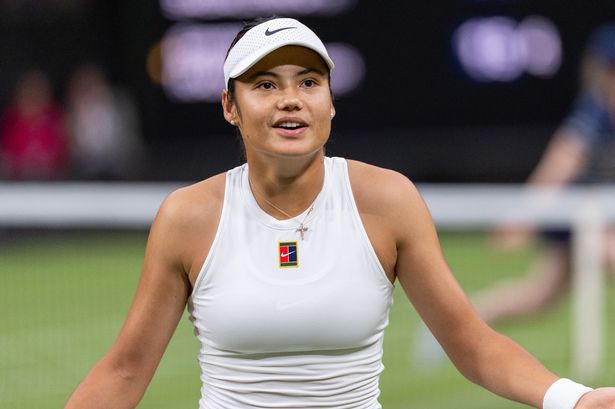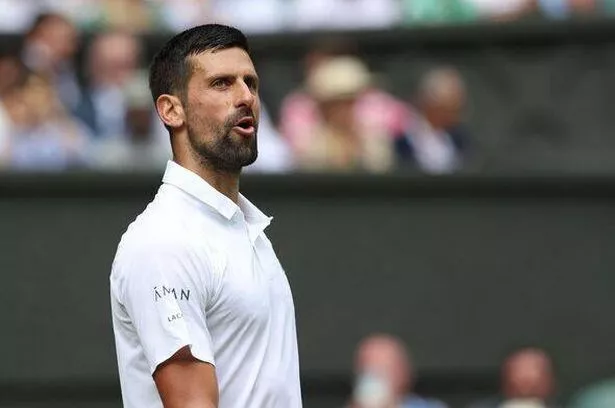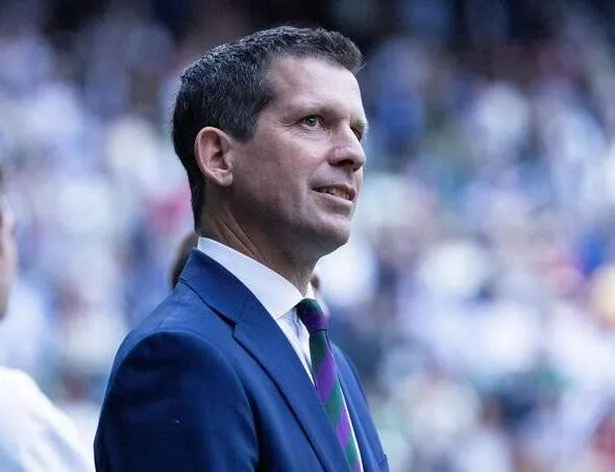
Tennis stars Emma Raducanu and Novak Djokovic have opposing views on Wimbledon’s new Electronic Line Calling system (ELC). The technology has replaced traditional line judges at the All England Club for the first time this year.
The change has proven controversial, with British top seeds Raducanu and Jack Draper questioning the ELC’s deployment at SW19, despite Tim Henman ardently defending the technology. Wimbledon officials were forced to apologise after the ELC system’s error during Sonay Kartal’s fourth-round loss to Anastasia Pavlyuchenkova on Sunday.
The system failed to detect a wayward shot by Kartal, causing a pause in play and leading the umpire to call for the point to be replayed. The All England Club later attributed the mishap to human error. Despite the controversy, seven-time Wimbledon winner Djokovic remains supportive of the technology’s use in tennis, which saw its Grand Slam debut at the Australian Open in 2021.
“Since we made the introduction of this technology for the line calling, I guess you have to heavily rely on the technology,” Djokovic told the i paper. “I think that technology’s probably more accurate and making less mistakes than a lines person. But where you’re going to have a system failure and then it happens in an awkward time of the match, like yesterday, that’s not good.
“I didn’t feel in my matches so far I had some really bad calls from the system, to be honest. I don’t have any complaints in that regard.”
Djokovic may be satisfied with the ELC system, but not all players are on the same page. After a third-round loss to top seed Aryna Sabalenka, Raducanu aired her grievances about the technology.

(Image: Rob Newell – CameraSport via Getty Images)
“It’s kind of disappointing, the tournament here, that the calls can be so wrong, but for the most part they’ve been okay,” Raducanu shared, before adding, “It’s just like, I’ve had a few in my other matches, too, that have been very wrong. So yeah, I don’t know. Hopefully, they can fix that.” Echoing Raducanu’s concerns, British men’s No. 1 Draper also questioned the ELC’s reliability: “I don’t think it’s 100 per cent accurate,” he stated.
BBC pundit and All England Club committee member Henman has dismissed players’ criticisms of the technology. “The narrative around players questioning the accuracy of the calling is just utter garbage,” Henman argued.
“I was commentating on some of those matches, and when you see it in real time, you sort of think: ‘Oh, I’d like to see that one again.’ And then when you go back, as I’ve done, and look at them in slow motion. They are on the outside edge of the line, they hit the line. You can sometimes see even that little puff of white chalk, whatever it is. Is the technology accurate? Absolutely, 100 per cent.
“You’ve got to take into account when you are the player, you’re seeing the ball and you’re hoping: ‘Oh, I hope that’s going to go out’. We have the technology, let’s use it because the ball is traveling around 140 miles an hour and it’s really difficult to call the lines. It’s garbage that the players say it is garbage.”

(Image: Simon Bruty/Anychance/Getty Images)
Despite Henman’s objections, his BBC colleague John McEnroe remains uncertain about the precision of the ELC technology “I’m the perfect guy to ask. My hair is pretty white at this stage and I haven’t got much left. I might have a little more if it wasn’t for all of those line judges blowing those calls,” McEnroe quipped on BBC One.
“The thing is, it needs to be right. I think they [Hawk-Eye] have said it’s plus or minus 3mm, but is that for sure? Who’s done the testing?”
Former US Open champion Marin Cilic and Olympic gold medallist Belinda Bencic have also expressed their distrust of the technology. However, Djokovic’s most recent opponent Alex de Minaur had no gripes about the ELC following his defeat on Monday.
British doubles star Joe Salisbury offered a slightly different opinion, arguing that the shift away from line judges has altered the feel of the game. “It takes away the trust when you see some of the things that have happened. It’s supposed to be way more accurate than the human eye,” Salisbury told the i paper.
“I don’t know if it’s 100 per cent accurate but you’ve got to trust it. I haven’t had any shots where I thought that’s clearly wrong. I quite like having the line judges and the challenges. The crowd quite like it instead of everything being electronic.”
In response to the contentious incident during Kartal’s match, the All England Club provided a statement to BBC Sport: “Following our review, we have now removed the ability for Hawk-Eye operators to manually deactivate the ball tracking. While the source of the issue was human error, this error cannot now be repeated due to the system changes we have made.”

